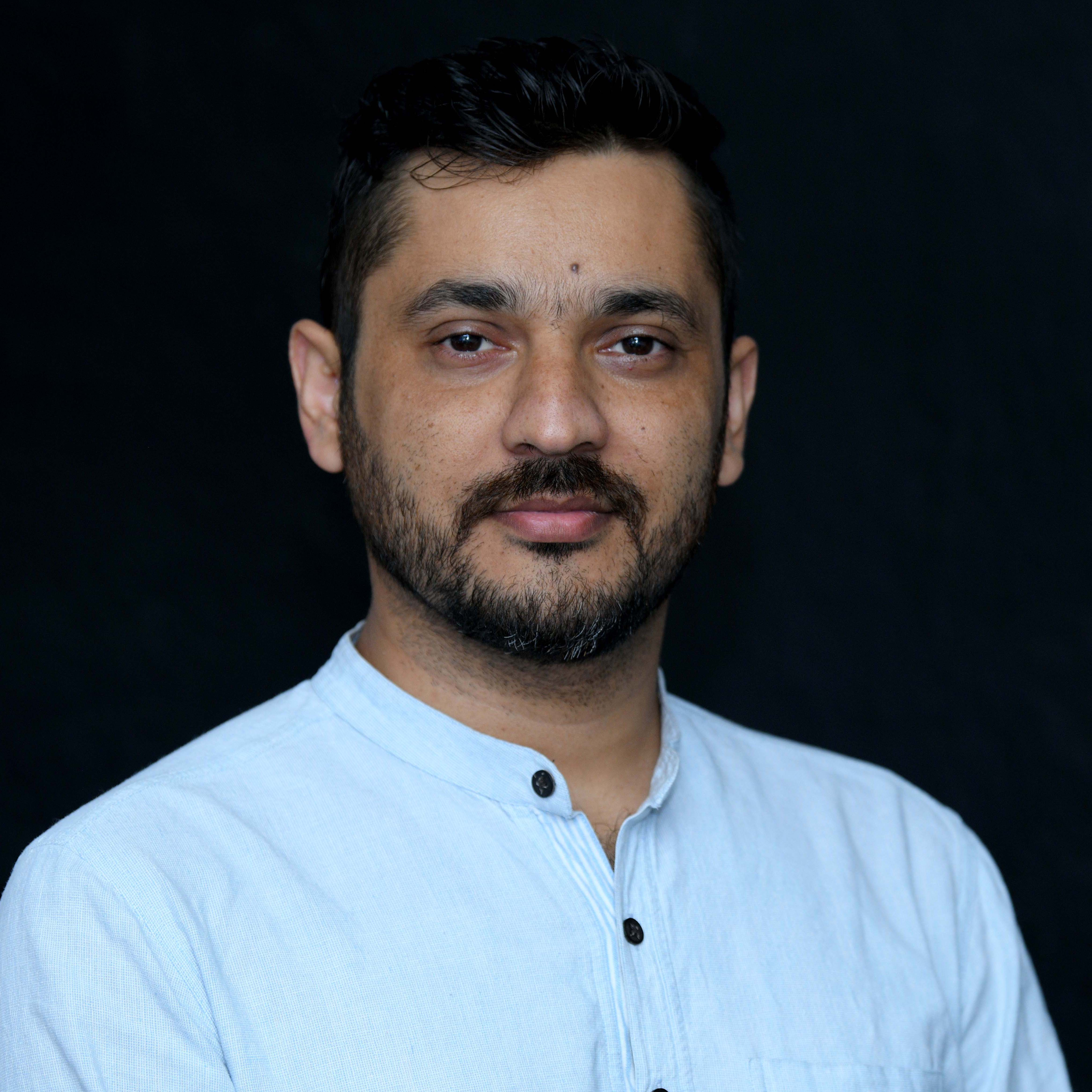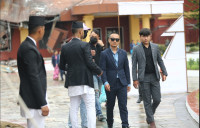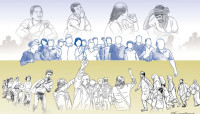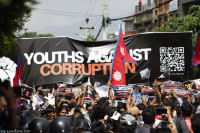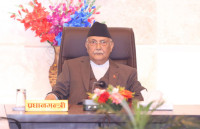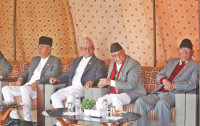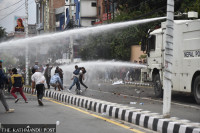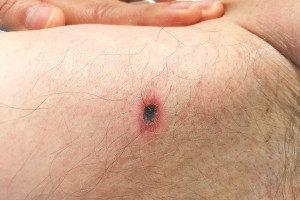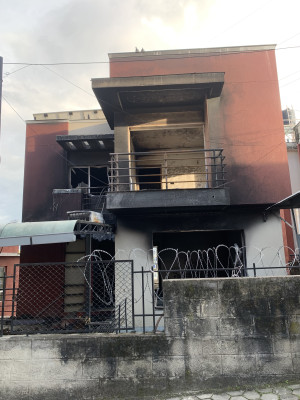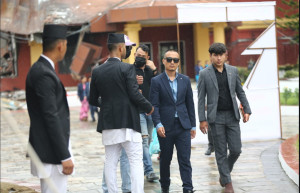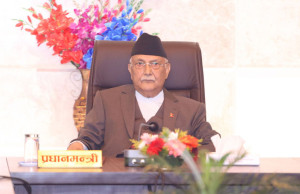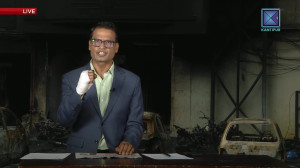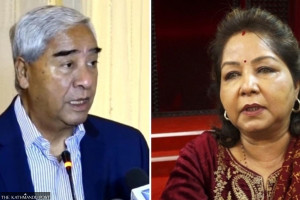Columns
The tyranny of loss
Death is not as much about the deceased as it is about those who survive them.
Dinesh Kafle
‘Life is so rare to be statistically insignificant’, writes Annie Dillard in her book The Writing Life. The loss of lives owing to the coronavirus pandemic has been a statistical nightmare as dead bodies of victims are either lining up in cremation ghats or washing up on the banks of the Ganga. As decent medical care becomes a chimaera, we have started wishing for a decent funeral in case we ourselves or our loved ones succumb to the virus. That the deaths are more a result of systemic failure than the virus itself leaves us in a dilemma as to whether we should prioritise mourning the dead or expressing angst against the system. Statistics may not humanise each death, but at least they provide us with an abstraction of the magnitude of the crisis in front of us. People are being denied numbers, let alone dignity in death and illness. The criminal apathy of those who govern us is depressingly reprehensible.
For me, the coronavirus crisis ceased to remain a statistic and became a personal story of grief when my friend lost her father in late April. ‘Dad passed away’, Fathima texted me from her home in western Uttar Pradesh just as I was alighting from the last of the flights before the second wave restrictions came into effect. Exactly a week before that day, she had informed me, over a patchy internet connection when I was somewhere in the middle of the Langtang National Park, that both her parents had tested positive for the virus and been rushed to the hospital. While her mother was stable and returned home in a couple of days, her father had to be admitted to the ICU right away. Luckily for them, at least then, there was a steady oxygen supply at the hospital—a rarity in these troubling times.
The next few days were a roller-coaster ride as Mukhtar Uncle’s vitals fluctuated, each alternate day bringing hope and despair. We sought positive stories of miraculous recoveries and hoped that Uncle would return home. But by the evening of the sixth day, my friend was praying to the Almighty to make her father’s impending journey to jannat as painless as possible. That is what living and dying has come to during this pandemic. The ruthless contagion robs us of the chance to be with our loved ones in their final moments and mourn the way we are accustomed to. We are left wondering if the loss is to be considered destiny or cosmic injustice.
Death is not as much about the deceased as it is about the living. It is about how we come to terms with the void the ones who passed on have left in our lives. It is about how we memorialise them and give them afterlives. I remember Mukhtar Uncle as a man of few words. When he called his daughter on the phone, he hardly spoke for a minute before passing the phone on to his wife. But whenever he got an opportunity, he accompanied his daughter when she travelled for conferences and took special pride in being identified as Fathima’s father. Each summer, he travelled to Delhi from his hometown in Sambhal district to drop mangoes for his daughter and her friends, had lunch at the university, and took the afternoon train home. He could not make his annual pilgrimage to the university due to the pandemic last year. This year, he passed away even before the mangoes were ripe.
On the second day of Mukhtar Uncle’s passing, I heard that Tanvi’s (another friend) mother had taken ill and needed oxygen supply. In the next few days, Nishi Aunty’s condition deteriorated and she had to be put under intensive care. She got medical facilities at a private hospital in Delhi, but could not make it back. For those of us who had left our homes behind to be at the university in Delhi, Nishi Aunty provided us with a sense of filial security—and a home away from home. And now, she is gone. Tanvi’s friends have lost someone who made Delhi feel like home. Tanvi, who now lives abroad and could not visit her mother during her last moments, has lost an anchor to home and country. The invisible enemy has exposed the ephemeral nature of what we often took for granted as security and refuge from the vagaries of the outside world.
As a collective event of death and mourning, the pandemic is nothing short of an apocalypse. But each different person’s death becomes a personal story of grief for many. I do not know whether I should really ask my friends who have lost their loved ones to be brave or to let them grieve for as long as they need to. Providing consolation for the bereaved is a tricky affair, for you are never sure if you are unknowingly offending them by over-expressing your remorse or by not expressing it enough. No amount of justification of our loss as part of a collective crisis is going to compensate for our personal pain. In our own personal selves, we have been deeply wounded. Rather than pretend to be strong, maybe the best way out is to let this grief take over us as long as it should, leaving it to time to heal our wounds.
We are not yet certain when this crisis is going to get over, but there will come a time when we will speak of it in the past tense. We will remember it as a war—a war against an invisible enemy that we mostly lost even if we survived it. In the aftermath of this war, we will probably seek solace by telling each other the stories of our losses, and helping heal each other just as animals lick each other’s wounds as a collective process of healing. Maybe some of us will try to forget this crisis altogether as part of the healing process. It will be a struggle between memorialising and obliterating our irreparable losses; each unique struggle is equally valid.




 16.07°C Kathmandu
16.07°C Kathmandu